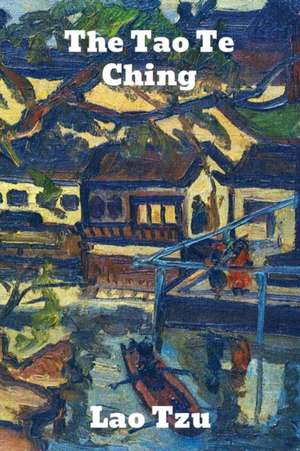The Tao Te Ching
Autor Tzu Laoen Limba Engleză Paperback – sep 1868
Preț: 62.24 lei
Nou
Puncte Express: 93
Preț estimativ în valută:
11.91€ • 12.94$ • 10.01£
11.91€ • 12.94$ • 10.01£
Carte tipărită la comandă
Livrare economică 21 aprilie-05 mai
Preluare comenzi: 021 569.72.76
Specificații
ISBN-13: 9781774415375
ISBN-10: 1774415372
Pagini: 48
Dimensiuni: 152 x 229 x 4 mm
Greutate: 0.08 kg
Editura: Binker North
ISBN-10: 1774415372
Pagini: 48
Dimensiuni: 152 x 229 x 4 mm
Greutate: 0.08 kg
Editura: Binker North
Notă biografică
Laozi, also rendered as Lao Tsu and Lao-Tze, was an ancient Chinese philosopher and writer. He is the reputed author of the Tao Te Ching,] the founder of philosophical Taoism, and a deity in religious Taoism and traditional Chinese religions. A semi-legendary figure, Laozi was usually portrayed as a 6th-century BC contemporary of Confucius, but some modern historians consider him to have lived during the Warring States period of the 4th century BC.[7] A central figure in Chinese culture, Laozi is claimed by both the emperors of the Tang dynasty and modern people of the Li surname as a founder of their lineage. Laozi's work has been embraced by both various anti-authoritarian movements[8] and Chinese Legalism Laozi is traditionally regarded as the author of the Tao Te Ching (Daodejing), though the identity of its author(s) or compiler(s) has been debated throughout history.[45][46] It is one of the most significant treatises in Chinese cosmogony. As with most other ancient Chinese philosophers, Laozi often explains his ideas by way of paradox, analogy, appropriation of ancient sayings, repetition, symmetry, rhyme, and rhythm. In fact, the whole book can be read as an analogy - the ruler is the awareness, or self, in meditation and the myriad creatures or empire is the experience of the body, senses and desires.
